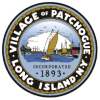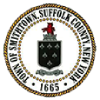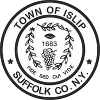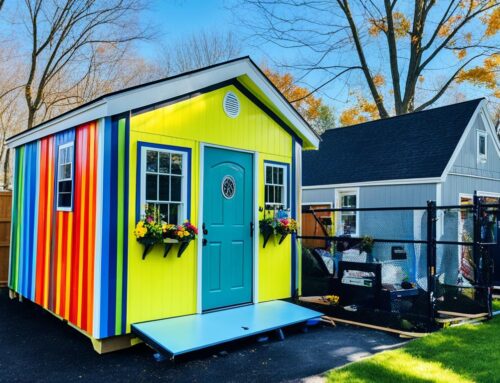With the rise of short-term vacation rentals through platforms like Airbnb, it’s essential for property owners in Brookhaven, New York to understand the legality and regulations surrounding these types of rentals. The Town of Brookhaven is currently proposing legislation that could render Airbnb stays and other short-term vacation rentals illegal. As a property owner, it is crucial to be aware of the legal requirements and Airbnb laws to avoid fines, potential jail time, and other repercussions.
The proposed changes to the Brookhaven code define transient rental occupancy as rentals under 28 days, including those advertised on platforms like Airbnb, Home Away, and Vrbos. These changes also prohibit renting out other parts of a residential property, such as a backyard pool or tennis court, for recreational use. Property owners found in violation of the proposed code may face fines ranging from $500 to $6,000, as well as potential jail time. Real estate brokers would also be held liable under the new regulations. It’s important to note that the proposed changes exclude motels, bed and breakfasts, and rentals on Fire Island. The Town Board believes these changes will provide clarity for property owners regarding the legality of short-term rentals in Brookhaven.
Key Takeaways:
- Brookhaven, NY is considering legislation that could make Airbnb stays and other short-term vacation rentals illegal.
- The proposed changes to the code define transient rental occupancy as rentals under 28 days.
- Renting out other parts of a residential property, such as a backyard pool or tennis court, for recreational use would also be prohibited under the proposed code changes.
- Property owners in violation of the proposed code may face fines ranging from $500 to $6,000 and potential jail time.
- The proposed changes exclude motels, bed and breakfasts, and rentals on Fire Island.
By staying informed about the Airbnb legality in Brookhaven, NY and understanding the legal requirements, property owners can ensure compliance and avoid any legal issues. It is advisable to consult with legal experts or professionals who specialize in permit assistance and code compliance for a smooth permit journey.
- Understanding the proposed legislation and its potential impact is crucial for property owners in Brookhaven, NY.
- Over 500 people have signed an online petition opposing the proposed legislation, arguing for regulation rather than an outright ban.
- Short-term rentals bring additional revenue to local businesses and generate occupancy tax revenue.
- A grassroots movement called the Brookhaven Alliance for Property Owners’ Rights has formed in opposition to the proposed regulations.
- A recent zoning ordinance amendment allows homeowners to participate in short-term rentals for up to 180 days a year, with certain conditions and permits.
Proposed Legislation Faces Opposition from Homeowners
Despite the proposed legislation in Brookhaven, NY, there is a growing grassroots movement of homeowners who are challenging the Airbnb regulations. Over 500 individuals have already signed an online petition expressing their strong opposition to the proposed laws. They believe that short-term rentals should be subjected to inspections, registrations, and taxation rather than being outright banned.
Supporters of short-term rentals argue that these accommodations bring numerous benefits to the local community. They highlight the additional revenue generated for local businesses and the occupancy tax revenue that contributes to the growth of the area. Furthermore, proponents state that there are very few complaints regarding short-term renters and emphasize that most visitors utilize these rentals to visit their families, work remotely, or simply enjoy all that Brookhaven has to offer.
The opposition against the proposed regulations has also led to the formation of the Brookhaven Alliance for Property Owners’ Rights. This organization aims to protect the rights of property owners and believes that they should be allowed to engage in short-term rentals as a means of maintaining their homes or operating successful businesses.
“The proposed legislation in Brookhaven undermines the rights of property owners and stifles economic growth. We firmly believe that responsible short-term renting should be regulated, not banned. It’s time to find a balanced solution that benefits both homeowners and the community at large.”
As the debate surrounding the proposed legislation intensifies, it is clear that homeowners are determined to fight for their rights and the ability to engage in short-term rentals. Stay tuned for further updates on this ongoing issue in Brookhaven, NY.
Potential Legal Challenges and Recent Zoning Changes
The proposed legislation in Brookhaven may face legal challenges similar to a previous law in Bellport Village that was deemed arbitrary and unconstitutional. The legislation in Bellport was found to encroach on private property rights without a substantial relation to a legitimate governmental purpose.
In a recent zoning ordinance amendment, the Town Council of Brookhaven lifted a ban on short-term rentals in single-family residential neighborhoods. Homeowners can now participate in short-term rentals for up to 180 days a year, provided they meet certain conditions and obtain a permit from the city’s Community Development Department. Any property with repeated code enforcement violations would not be eligible for a permit or permit renewal.
The amendments give the city the authority to enforce violations and regulate problematic rentals, addressing concerns raised by Mayor John Ernst and the council.
FAQ
Is Airbnb legal in the Town of Brookhaven, NY?
The Town of Brookhaven, NY is proposing legislation that would make Airbnb stays and other short-term vacation rentals illegal.
What are the proposed changes to the code regarding Airbnb in Brookhaven, NY?
The proposed changes define transient rental occupancy as rentals under 28 days and prohibit renting out other parts of a residential property for recreational use.
What are the penalties for violating the proposed code changes in Brookhaven, NY?
Property owners in violation of the proposed code changes may face fines ranging from $500 to $6,000 and potential jail time. Real estate brokers would also be held liable.
Are there any exceptions to the proposed legislation in Brookhaven, NY?
The proposed changes exclude motels, bed and breakfasts, and rentals on Fire Island.
Is there opposition to the proposed legislation in Brookhaven, NY?
Yes, over 500 people have signed an online petition opposing the proposed legislation. The Brookhaven Alliance for Property Owners’ Rights has also formed in opposition.
What arguments do supporters of short-term rentals make in Brookhaven, NY?
Supporters argue that short-term rentals bring additional revenue to local businesses, generate occupancy tax revenue, and that there are few complaints about renters. They also state that most visitors use short-term rentals for legitimate reasons, such as visiting family, working, or enjoying the area.
What legal challenges may the proposed legislation in Brookhaven, NY face?
Similar to a previous law in Bellport Village, the proposed legislation may face legal challenges if it is deemed arbitrary and unconstitutional. The Bellport law was found to encroach on private property rights without a substantial relation to a legitimate governmental purpose.
Have there been recent zoning changes for short-term rentals in Brookhaven, NY?
Yes, the Town Council of Brookhaven recently lifted a ban on short-term rentals in single-family residential neighborhoods. Homeowners can now participate in short-term rentals for up to 180 days a year, provided they meet certain conditions and obtain a permit from the city’s Community Development Department.
What happens if a property has repeated code enforcement violations in Brookhaven, NY?
Any property with repeated code enforcement violations would not be eligible for a permit or permit renewal.
What concerns have been raised by Mayor John Ernst and the council regarding short-term rentals in Brookhaven, NY?
Mayor John Ernst and the council have raised concerns about enforcement and the regulation of problematic rentals.












